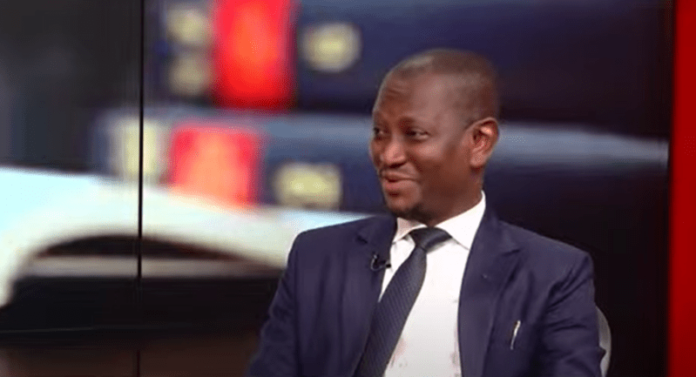The Deputy Attorney General, Alfred Tuah-Yeboah, has said the office is ready to prove its case on June 18 when it cross-examines the third accused person in the ambulance procurement trial, Richard Jakpa.
Speaking to Joy News after Thursday’s court proceedings, where Richard Jakpa made several claims against the Attorney General including a conversation in a WhatsApp chat, he declined to comment on Jakpa’s the testimony, saying they will also have their day in court.
He extended an open invitation to anyone interested in hearing the Attorney-General’s stance to visit the court on June 18.
“Whether it is credible or not credible, I said it is a live matter. As a lawyer of at least 22 years standing, I will not conduct my case in the media by saying it is credible or not credible. Come to court on Tuesday and hear our side of the matter,” he said.
Early on this day, June 13, the trial judge in the ongoing ambulance case, Justice Afia Serwah Asare-Botwe, admitted an audio recording between the Attorney-General and businessman Richard Jakpa into evidence.
According to her, the reasons for admitting the recording during the mistrial application on June 6, 2024, still apply.
She noted that the pen drive containing the recording has been admitted in the interest of fairness, since any electronic evidence by the prosecution would have been allowed.
The controversy started when lawyers representing the Minority Leader, Dr Cassiel Ato Forson attempted to introduce the audio recording into evidence, prompting an objection from the Attorney General, who questioned the foundation and relevance of the recording.
The audio recording, previously admitted and pivotal in the trial judge’s mistrial decision, is now being tendered again by defense lawyers, who argue that it forms a crucial basis for the charges of causing financial loss to the state made by the Attorney General.
Lead counsel for Dr Forson, Dr Aziz Bamba, emphasised that the 16-minute recording pertains to the agreement between the Ghanaian government and a subsequent Letter of Credit.
Dr Bamba argued that the Attorney General’s conduct in the recording amounts to oppression of the accused, while also undermining the integrity of the trial process.
He contended that the audio recording is relevant as it suggests the case was not pursued in good faith, pointing to procedural irregularities in the Attorney General’s handling of the matter.
In response, the Attorney General argued against the recording’s admission, asserting that its relevance was not sufficiently supported.
The AG referenced the trial judge’s previous dismissal of the mistrial application, which relied on the recording, as evidence of its limited relevance to the case.
The AG further questioned whether the recording addresses the essential elements of the alleged financial loss to the state, arguing that it does not substantiate the charges against the accused.
The prosecution echoed these sentiments, additionally accusing Richard Jakpa of violating the Attorney General’s right to privacy by recording their conversation.
However, in her ruling on Thursday, Justice Asare-Botwe disagreed with the Attorney General and admitted the recording into evidence.
Meanwhile, Mr Tuah-Yeboah argues that the admittance of the evidence would not significantly impact the outcome of case. He believes the audio does not contain enough evidence to guarantee that Richard Jakpa will win the case.


